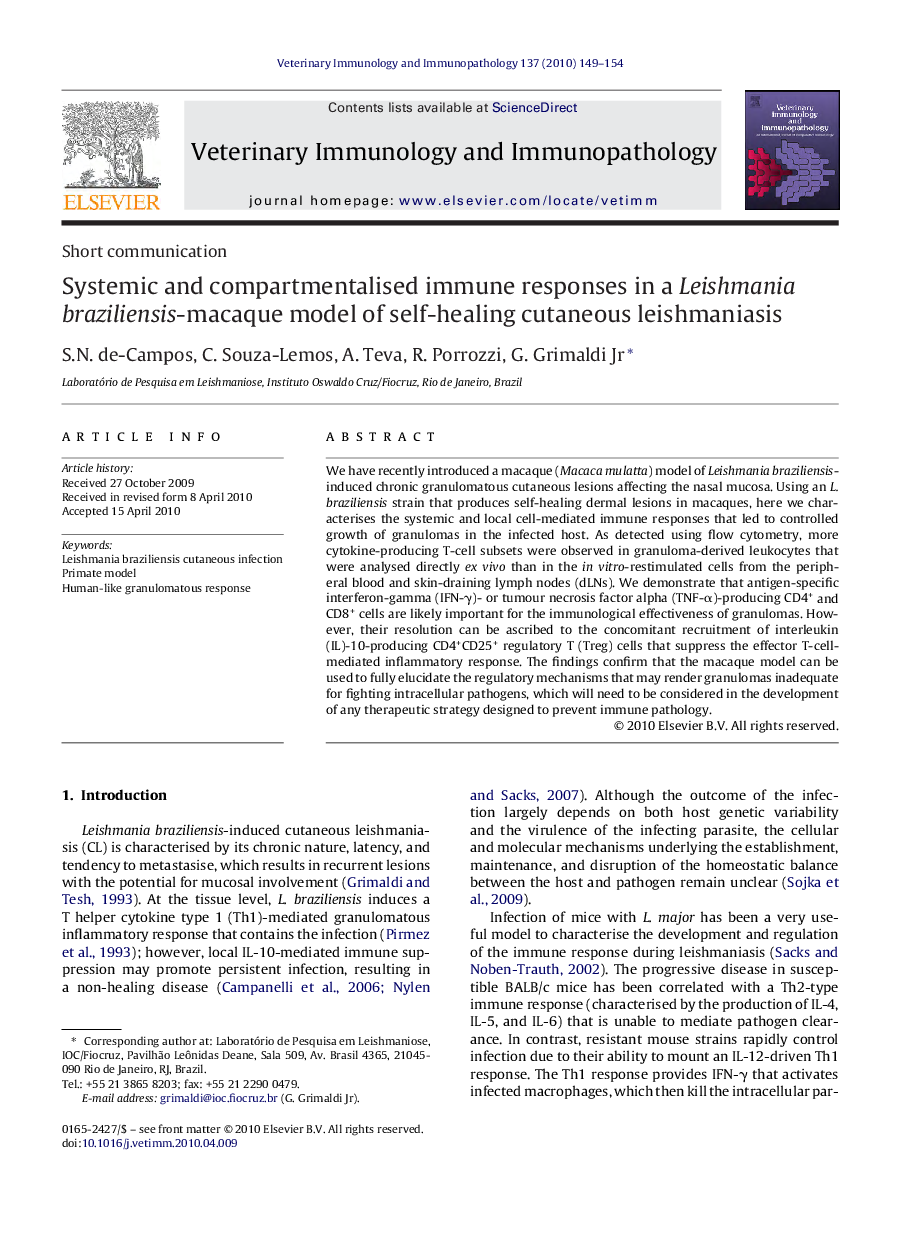| کد مقاله | کد نشریه | سال انتشار | مقاله انگلیسی | نسخه تمام متن |
|---|---|---|---|---|
| 2462461 | 1555075 | 2010 | 6 صفحه PDF | دانلود رایگان |

We have recently introduced a macaque (Macaca mulatta) model of Leishmania braziliensis-induced chronic granulomatous cutaneous lesions affecting the nasal mucosa. Using an L. braziliensis strain that produces self-healing dermal lesions in macaques, here we characterises the systemic and local cell-mediated immune responses that led to controlled growth of granulomas in the infected host. As detected using flow cytometry, more cytokine-producing T-cell subsets were observed in granuloma-derived leukocytes that were analysed directly ex vivo than in the in vitro-restimulated cells from the peripheral blood and skin-draining lymph nodes (dLNs). We demonstrate that antigen-specific interferon-gamma (IFN-γ)- or tumour necrosis factor alpha (TNF-α)-producing CD4+ and CD8+ cells are likely important for the immunological effectiveness of granulomas. However, their resolution can be ascribed to the concomitant recruitment of interleukin (IL)-10-producing CD4+CD25+ regulatory T (Treg) cells that suppress the effector T-cell-mediated inflammatory response. The findings confirm that the macaque model can be used to fully elucidate the regulatory mechanisms that may render granulomas inadequate for fighting intracellular pathogens, which will need to be considered in the development of any therapeutic strategy designed to prevent immune pathology.
Journal: Veterinary Immunology and Immunopathology - Volume 137, Issues 1–2, 15 September 2010, Pages 149–154